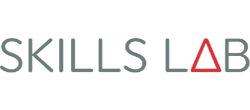Q&A: An insight into defence careers with SAGE
Admin, Published: November 27, 2017 - Updated: August 26, 2018 (7 min read)
 We managed to pull Troy Hemmerling away from his busy role as Senior Project Manager - Defence to discuss his position at SAGE and gain insight into the ever changing world of automation in defence.
We managed to pull Troy Hemmerling away from his busy role as Senior Project Manager - Defence to discuss his position at SAGE and gain insight into the ever changing world of automation in defence.
Q: How did you break into the defence sector?
A: After completing a Bachelor of Engineering (Computer Systems) at Adelaide University in 1998, I got my first job in defence as a software engineer at Boeing Defence in Queensland. That was my break into defence. At the time Boeing Defence travelled around Australia recruiting people for their Graduate Program and it was fairly competitive, so it was really exciting getting the job.
Q: Tell us about your career as an engineer then project manager in defence:
A: As a graduate at Boeing Defence I worked on the AGM-142 Stand Off Weapon upgrade to the F-111 aircraft. Then I moved into a hardware engineering position working on various other F-111 upgrade projects including the ALR-2002 Radar Warning Receiver trials, Electronic Warfare Self Protection suite and Voice and Data Recorder. I enjoyed working on the ALR 2002 Radar Warning projects because they gave me most exposure to the full engineering process and it had to be done in a short time frame, which meant it was extra challenging.
After these projects I took an opportunity at Raytheon Australia as an Electrical Design Engineer. There, I was responsible for the Communications Subsystem on the Electronic Warfare Training Services aircraft project.
I wanted to expand my skill set and knowledge from engineering to include project management too, and so I moved to a Project Management role at Raytheon, then worked for Jacobs Australia as a contractor within the DSTO (or DST Group as it is now known).
Q: What do you do at SAGE Automation?
A: For the last 10 years I’ve been a Project Manager for defence projects at SAGE Automation. We deliver fit-for-purpose control systems solutions for major defence primes and major subcontractors such as including BAE Systems, Chemring, Navantia and Thales.
At SAGE, I’ve been lucky enough to manage projects such as the control system upgrade for the chilled water system on board the Collins Class Submarines. This system provides critical cooling to all the electronic equipment onboard that operates the submarines.
Q: What is it like to work in the defence industry?
A: It’s challenging but also really rewarding. The variety of projects and platforms available to work on within the sector is diverse. For example there’s the Future Submarines, Future Frigates and Offshore Patrol Vessels being built now that will each have its own challenge and technology onboard. This is really exciting for people looking to enter the industry.
It can be challenging in that major projects tend to span over many years which can seem like the end goal is a long way away. But the rigorous engineering process required within the defence sector means that there are a lots of milestones throughout the lifecycle.
Q: What do you like most about your job?
A: I’m a very focused and driven person. I get a lot of satisfaction by getting successful outcomes for my clients that can’t be achieved without the support of the project teams that surround me.
The ability to deliver a new piece of technology, or new capability to the defence forces is very rewarding. Plus, SAGE have the best processes and technologies and a very progressive attitude which enables me to succeed in the projects that we deliver.
Q: What skills and qualifications are needed for a career in defence engineering?
A: First, in any engineering field it’s important to get a recognised degree from a reputable university within the field that you are interested in. For me it was Engineering and Computer Systems.
Secondly, it’s extremely important to be willing to continue to learn and apply your core engineering skills within your day-to-day job. While the technology is continually changing, the core engineering principles and processes are the foundation for every project we undertake.
Finally I'd suggest doing your research and getting to know what defence primes and sub contractors are out there. Take the time to get to know whatever company and industry you want to work in. This will give you a leading edge.
Q: What other jobs are out there for the defence industry?
A: There's a lot going on in defence in terms of new projects such as the Future Submarines, Future Frigates and Offshore Patrol Vessels. It's reported that in the early years of construction on these projects, there'll be demand for trade qualified workers in structural and outfitting occupations.
There's also the Naval Shipbuilding College tender to be announced soon, which could provide more job opportunities through upskilling. The government says the initial focus will be on key entry-level trades, and will later expand to include higher education qualifications such as naval architecture and engineering. They're looking to target ex-automotive workers including those from Holden, as well as ex-mining workers.
Read more information on this program here.
Q: What kind of attitude and skills do you need to succeed in this industry and why?
A: Defence is a very stringent industry. This means you need to have good attention to detail, an ability to follow defined processes, and be able to clearly communicate with all levels of people.
Q: What advice do you have for those interested in pursuing a career in the defence support sector?
A: It’s an exciting time to be considering entering the defence sector. A significant number of projects are in the pipeline and many of these are in South Australia, which is great in terms of career prospects.
Where possible I would suggest undertaking a work experience or an internship within a defence industry company at some point during your studies so that you can gain an insight into the industry. And who knows, you may even get a job out of it.
In a competitive field, grades are important, so I recommend focusing on achieving the best grades you can. But its also about paring this with real world experience, whether it be through an internship, an apprenticeship, industry training, or being active in a related hobby.
Whether you’ve got a trade qualification or engineering degree – automation knowledge will set you apart from the crowd. Find out more about our automation training courses.





